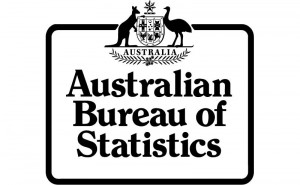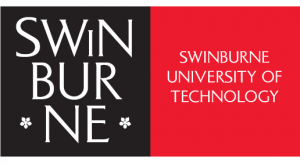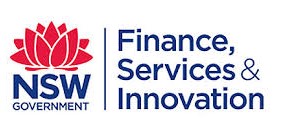Global Speakers

Capt. Adam Allica
Director of Navy Innovation and Continuous Improvement
Royal Australian Navy
Captain Allica joined the RAN in 1986 as a Direct Entry Officer, graduating from the Royal Australian Naval College in 1986. Captain Allica qualified as a Maritime Warfare Officer 1988, as a Navigator in 1990 and as a Principal Warfare Officer specialising in Surface Warfare and Communications in 1996.
Throughout his career at sea, Captain Allica served in HMA Ships Jervis Bay, Ipswich, Parramatta, Torrens, Cessnock, Gawler, Sydney, Darwin and Newcastle. Captain Allica has completed a successful sea command of HMAS Fremantle (2000-02) conducting immigration and fisheries operations in Australia’s Northern Waters as part of Operations Cranberry and Relex.
Captain Allica has undertaken extensive operational postings during his career including deployments to the Middle East in HMAS Sydney (1993) for Red Sea boarding operations as part of Operation Damask, as Staff Officer Operations at Headquarters Australian Theatre (1998-200) for operations in East Timor, and the Persian Gulf in HMAS Newcastle (2005) for Operations Slipper and Catalyst.
Shore postings for Captain Allica have included periods as a Navigation Instructor (1992), Bridge Simulator Instructor (1995), and Sea Training Group as Fleet Anti-Submarine Warfare Officer and Fleet Electronic Warfare Officer (2002). Captain Allica has spent eight years (2005-2013) working in the commercial sector as a Management Consultant, ICT Project and Program Manager, senior management roles within ICT companies as well as establishing his own start-up company. Captain Allica re-joined the Permanent Naval Force in 2013 at the Directorate of Navy Continuous Innovation where he has held roles as Project Manager, Deputy Director and Director. In 2017 Captain Allica introduced Artificial Intelligence (Ai) technologies to Navy; he has been instrumental in developing the Defence Ai capability through the delivery of the first Robotic Process Automation bots in Navy/Defence.
A graduate of the Australian Command and Staff Course (2003), Captain Allica holds a Masters Degree in Business Administration (University of New South Wales’ Australian Graduate School of Management), Graduate Diploma of Management (Defence Studies) (University of Canberra) and Graduate Certificate in Maritime Studies (University of Wollongong) and as well as being a Graduate of the Australian Institute of Company Directors.
Captain Allica is married to Annie and has two children.
Topic:
AI in Enhancing Government’s Productivity: How AI and Robotic Process Automation Will Slash Paperwork Burdens, Reduce Manual and Repetitive Tasks with Bots

Miguel Carrasco
Senior Partner and Managing Director
The Boston Consulting Group
Miguel Carrasco is a Senior Partner at The Boston Consulting Group. He is the global practice leader for DigitalBCG in Public Sector and has experience in digital strategy and transformation, and the future of work. He is the author of BCG’s world-leading global digital government benchmarking series and was co-lead on a joint study with CSIRO/Data61 on the impact of robotics, automation and AI on Australia’s workforce. He has been a senior strategic adviser to Australian state and federal governments on digital economy strategy, as well as several leading governments in Europe, the Middle East and South-East Asia. He works with senior leaders in public and private sector clients globally on future workforce planning for the digital age, including most recently with the Department of Jobs and Small Business and Brisbane City Council.
Miguel is a member of the Business Council of Australia’s Skills, Education and Flexibility Committee and Innovation Taskforce. He holds a Master of Public Policy from the University of Sydney and a Bachelor of Accounting from the University of Technology, Sydney.
Topic:
Citizen Attitudes Towards AI in Government, What Governments Can Do to Build Trust and Confidence, and How Do Address Questions of Ethical Algorithms and Principles

Jessie Nghiem
Senior Data Scientist, Data and Analytics
Energy Safe Victoria
Jessie Nghiem is a dedicated data scientist and researcher with extensive 10+ year experience in Insurance, Banking, Education and Retailing industry. Currently, she is working as Senior Data Scientist at Energy Safe Victoria and teaching at Monash University. She holds a PhD degree in Computer Science with Monash University and a Master degree in Computer Engineering with Sungkyunkwan University, South Korea.
Topic:
Roundtable Table 5: Using Predictive Analytics and AI to do Audit Targeting and Improve Public Safety

Ben Kraal
Director, Experience Design
Symplicit
Dr Ben Kraal is a Director of Experience Design with Symplicit. Ben’s background is mixed, with deep expertise in computer science, sociology of technology and design. Ben and his team use use design approaches to ask better questions about complex organisational problems.
Topic:
Roundtable Table 6: Ways to Think About AI: Mental Models for Deeper Engagement

Frederic R Clarke
Director, Emerging Data and Methods | Methodology Division
Australian Bureau of Statistics
Frederic has over 20 years of public sector work experience, in roles as diverse as data analysis, systems development and support, strategic planning, program management, enterprise architecture, and client relations. This has given him the chance to lead, influence and collaborate with people from a wide cross-section of technical and business disciplines. In balancing the competing demands of capability transformation and production assurance, he naturally take a consultative, client-focused approach. He has e a proven track record of achieving results in challenging projects, often during disruptive organisational change, and always under stringent operational, schedule and resource constraints.
He is also passionate about creating an enduring culture of innovation, and he maintains an active professional interest in emerging scientific and management practice. As a strong conceptual thinker, and he is able to quickly understand, assess and integrate complex ideas to produce new solutions and strategies. He actively contributes to national and international communities of practice in data science, technology innovation and agile development.
Topic:
Roundtable Table 7: ABS Case Study: A ”Next Generation” Analytical System Called GLIDE

Simon Maselli
Director
M-Innovation Australia
Simon Maselli is the Managing Director of M innovation. He has been developing technologies for managing assets and resources for over 25 years. His technologies have been implemented across Australia, NZ, South East Asia and parts of Europe for companies including BHP, BP, Anglo Coal and Transurban.
Simon spent the first part of his career on the Amcor Fast Track program and has qualifications in Engineering, Business, Project Management and Innovation.
Simon has led M-innovation to become an award winning company, and in 2016 it was named as one of Australia’s top Startups. Most recently M innovation has developed the Asset Genie, an artificial intelligence driven engine for reducing the cost to own and maintain assets over their useful life. The asset genie won the coveted 2018 Victorian AIIA awards – Artificial Intelligence and Machine Learning Innovation of the Year.
Topic:
Case Study: How AI is Helping Award-Winning City of Casey Improve its Public Infrastructure Maintenance and Citizen Satisfaction

Prof. Rob Roggema
Sustainable Urban Environments Faculty of Design, Architecture and Building
University of Technology Sydney
Prof. dr. ir. Rob Roggema is Professor of Sustainable Urban Environments in the UTS School of Architecture. He is a Landscape Architect and an internationally renowned design-expert on sustainable urbanism, climate adaptation, energy landscapes and urban agriculture. He has previously held positions at universities in the Netherlands and Australia, State and Municipal governments and design consultancies. Rob developed the Swarm Planning concept, a dynamic way of planning the city for future adaptation to climate change impacts.
Rob leads the Urban Research Network at UTS and focuses in his research on resilient and smart urbanism. He is also leading the Sydney Urban_Institute in Sydney, which will research and implement intelligent solutions for current urban problems.
Recent design-concepts Rob has developed include Double Defence, a proposal of a second row of barrier island to protect the coast for storm surges in times of climate change; A Floodable Eemsdelta for a region under threat of flooding, Bushfire Resilient Bendigo, a method of anticipating bushfires by creating a protective shield and slowly moving away the town; FoodRoofRio, a rooftop garden with an aquaponic system that provides food for the whole family in Cantagalo favela in Rio de Janeiro; and the Sydney Barrier Reef, a refuge for the Great Barrier Reef as it is bleaching away, and extra protection barrier for Sydney real estate against future storms and cyclones.
Rob has designed and led over 30 design charrettes around the world, involving communities, academics, governments and industries in the design process. He has written three books on climate adaptation and design, four on Urban Agriculture, and one each about design charrettes, Rio’s FoodRoofs and Design for Recovery in Japan. Amongst his keynote addresses are speeches in Melbourne, Sydney, Tokyo, Shanghai, Doha, Kuwait City, Amsterdam, Delhi and San Francisco.
Topic:
Urban Planning and Design: How AI Will Assist Urban Planning and Design

Joana Valente
Digital Government Leader
Independent Speaker
In both the public and private sectors, she has led engagements in: technology strategy, technology sourcing, technology-enabled transformation (across the entire operating model), data driven policy and service delivery transformation, technology optimisation, infrastructure transformation, systems integration and application and IT management.
As the Oceania Digital Government Leader, Joana leads teams in working with clients to shift the engagement between the public sector and its key stakeholders. Key solution approaches include: leveraging customer behaviour insight to deliver services more efficiently; understanding the complexity and risk profile of different government decisions in order to highlight those that require most resource attention; integrating traditional and digital engagement channels to shift engagement quality and cost; and improving policy outcomes through a data driven capability.
Topic:
Powerful Strategies for Getting Implementation Started on AI for Government

Paul Hyland
Director, Data Science and Analytics, Bureau of Communications and Arts Research
Department of Communications and the Arts
Paul Hyland is a data and analytics specialist who has established and been responsible for some of the Australian Government’s most significant and complex data analytics environments. Paul is experienced in driving performance and productivity improvements through the leveraging of ‘big data’ and data assets across multiple government organizations.
Topic:
Learning Lessons from Recent AI Implementations for Government: Challenges, Success and Failures

Ben Jiang
Director – Data Analytics, Technical Audit
Victorian Auditor-General’s Office
Ben Jiang started his career within public sector audit services in 2003. Since then he has held roles with the Queensland Audit Office (QAO), Australian National Audit Office and more recently the Victorian Auditor-General’s Office (VAGO). Ben is a Chartered Accountant and a Certified Information Systems Auditor with tertiary qualifications in both Accounting and IT. Prior to joining VAGO, Ben both started and led QAO’s first data analytics unit for 2½ years. During this time, Ben setup processes which streamlined the collection of reconciled data across 80 audit clients operating 20 different Accounting and HR systems. The collected datasets were then transformed and mapped into a QlikView dashboard for use by auditors on their audits of financial reports. These initiatives saved our auditors both time and reduced the risks of errors being introduced into manual analysis.
Topic:
Plans to Use AI to Improve our Audits of Financial Reports

Rimon Rony
Chief AI Data Scientist
Local Government Association of Queensland
Rimon is the Founder & Chief AI Engineer of Bluebeak.ai. Bluebeak is an AI platform that empowers decision makers with real-time, actionable insights. We provide Demand Data and Market Insights / Risk as a service.
Rimon is a new member of the LGSherlock Data Science Team (at LGAQ). As the Chief/Principal AI Data Scientist, Rimon is responsible for leading, designing and supporting Sherlock’s ‘AI Data Products’. Sherlock is the world’s first data storage and AI/ML tool, which is being introduced across an entire tier of local government.
His immediate past role as the Global Principal Data Scientist for the world’s largest building materials company HeidelbergCement, saw him deliver multiple products in the Engineering / Construction space. Rimon started the world’s first AI project in this industry to create disruption.
Rimon led and delivered numerous million-dollar projects in the past 10 years utilising artificial intelligence in diverse industries ranging from energy/resources, utilities, IoT, Automations, Asset Maintenance, Finance and many more.
Topic:
Lessons Learnt in AI Implementation: Interpreting Information From Technical Perspective

Dr. Fang Chen
Executive Director Data Science
University of Technology Sydney
Dr. Fang Chen was employed with Beijing Jiaotong University in China from 1995-1999. She was appointed as the Associate Professor of the Faculty of Electronic and Information Engineering in 1995, as the Deputy Director of the Institute of Information Science in 1996, and then as the Dean of Faculty of Electronic and Information Engineering in 1997.
Dr. Chen began her career in industry in 1999 as senior researcher and Team Leader in Intel China Research Centre. She joined Motorola in 2000 as Principal Researcher and founding manager of the Speech and Language Generation Research Lab of Motorola China Research Centre, where she also acted as the account manager of business relationships for the Motorola China Research Centre. Dr. Chen moved to Australia in 2002 to work for the Motorola Australian Research Centre, where she chaired the Patent and Publication Committees.
She joined NICTA in 2004 and was formerly the Research Group Manager and Senior Principal Researcher in Data61, CSIRO. Dr. Fang Chen has created many world-class solutions throughout her career. She leads many task forces with the goal of utilizing data analytics and computational platforms with scales and impacts both national and international. She has helped many industries towards excelling by better solutions to increase productivity, profitability and better customer satisfaction. She has achieved great success in many technical solutions and gained industry recognition such as the ITS (Intelligent Transport System) Australia National Award 2014 and 2015. She is the “Water Professional of the Year” awarded by Australian Water Association (AWA) NSW on her exceptional leadership and achievements in helping water sector through innovative solutions.
Dr. Chen has more than 250 refereed publications and has filed more than 30 patents in 8 countries. She is also a conjoint professor with the University of New South Wales and adjunct professor with the University of Sydney, who has supervised more than 20 PhD students to finish.
Topic:
CSIRO Case Study: How AI And Big Data Analytics Can Transform Urban Transport Networks and Improve Transport Efficiency

Khitish Mohanty
Data Scientist
Department of Premier and Cabinet (Vic)
Khitish Mohanty is the Data Scientist at Department of Premier and Cabinet, Victoria. He is technically trained with heavy math and static background. He has several years of experience in banking and public sector industries. He has a particular area of interest in text analytics and unstructured data analysis. He is managing and looking into the social media listening platforms, implementation of AI, setting up methodologies and practices for data collection from different sources and responsible for how government can get most out of it and understand the data lake in a more intelligent approach. He is also helping the officers to get 360-degree insights with the help of advanced data architecture, machine learning practices and by creating tools for getting insights from the open text.
Topic:
Case Study – How the Briefs on Election Commitments Are Prepared on Specific Topics (Problem Areas) and Provided to MPs and Ministers with the Help of AI and Social Media Listening

Arash Shahriari, PhD
Data Scientist, Innovation and Data Analytics, Transport Canberra and City Services Directorate
ACT Government
Dr. Arash Shahriari currently works as data scientist for the ACT government. He was awarded his PhD on machine learning & computer vision from the Australian National University (ANU) while doing research at the National ICT Australia (NICTA) and CSIRO. He has years of professional service for the public and private sectors in data analytics, intelligent surveillance, and large-scale biometrics. His areas of interest include natural language processing, time-series analysis, and deep learning architectures.
Topic:
How Predictive Analytics and AI Can Data Mine Public Sentiments and Help to Improve on Policy-Making

Prof. Kai Qin
Director of Intelligent Data Analytics Lab, Swinburne Digital Research and Innovation Capability Platform
Swinburne University of Technology
Kai Qin is an Associate Professor in the Department of Computer Science and Software Engineering at Swinburne University of Technology. He is currently leading Swinburne’s Intelligent Data Analytics Lab as well as Machine Learning and Intelligent Optimization (MLIO) Research Group. Dr Qin’s major research interests include machine learning, evolutionary computation, computer vision, GPU computing, services computing and pervasive computing. His works have received over 8000 citations in Google Scholar. He won the 2012 IEEE Transactions on Evolutionary Computation Outstanding Paper Award and the Overall Best Paper Award at the 18th Asia Pacific Symposium on Intelligent and Evolutionary Systems (IES 2014). One of his conference papers was nominated for the best paper award at the 2012 Genetic and Evolutionary Computation Conference (GECCO 2012).
As an IEEE senior member, he is currently co-chairing the IEEE Emergent Technologies Task Forces on “Collaborative Learning and Optimization” and “Multitask Learning and Multitask Optimization”.
Topic:
Roundtable Table 4: Citizen Experience: Conversational AI Chatbots in Government Improve Customer Experience and Reduce Waiting Time

Dr Ian Oppermann
NSW Chief Data Scientist and CEO of NSW Data Analytics Centre
NSW Treasury
Dr. Ian Oppermann is the NSW Government’s Chief Data Scientist and CEO of the NSW Data Analytics Centre. Ian has 25 years’ experience in the ICT sector and, has led organizations with more than 300 people, delivering products and outcomes that have impacted hundreds of millions of people globally. He has held senior management roles in Europe and Australia as Director for Radio Access Performance at Nokia, Global Head of Sales Partnering (network software) at Nokia Siemens Networks, and then Divisional Chief and Flagship Director at CSIRO. Ian is considered a thought leader in the area of the Digital Economy and is a regular speaker on “Big Data”, broadband enabled services and the impact of technology on society. He has contributed to 6 books and co-authored more than 120 papers which have been cited more than 3500 times.
Topic:
Case Study: How NSW Government is Tapping on AI to Transform Its Procurement Costs

Philip Muehleck
Program Director, Service NSW
Department for Finance, Service and Innovation
Philip Muehleck held various senior positions in the field of customer strategy, analytics and enterprise intelligence in the private sector in automotive and consulting. Philip’s mission is to provide the foundations for smarter, faster and data-driven decision making, reducing uncertainty and risk, avoiding costly biases and maximising the return on technology driven investments.
Topic:
Determining Your AIQ (Artificial Intelligence Quotient) and Ways to Increase It

Dr Amin Beheshti
Data Analytics Research Director, Department of Computing
Macquarie University
Dr Amin Beheshti is the head of the Data Analytics Research Group, Department of Computing, Macquarie University. He is also the Lecturer in Data Science (Macquarie University) and Adjunct Lecturer in Computer Science (UNSW Sydney). Amin completed his PhD and Postdoc in Computer Science and Engineering in UNSW Sydney and holds a Master and Bachelor in Computer Science both with First Class Honours. In addition to his contribution to teaching activities, Amin extensively contributed to research projects; where he was the R&D Team Lead and Key Researcher in the ‘Case Walls & Data Curation Foundry’ and ‘Big Data for Intelligence’ projects. Amin has been recognized as a high-quality researcher in Big-Data/Data/Process Analytics and has been invited to serve and served as Keynote Speaker, General-Chair, PC-Chair, Organisation-Chair and program committee member of top international conferences. He is the leading author of the book entitled “Process Analytics”, co-authored with other high-profile researchers in UNSW and IBM research, recently published by Springer.
Topic:
Successful AI Strategy in Data-Driven and Knowledge-Intensive Government Processes

Rohan Baxter
Senior Director, Data Science & Engineering, Smarter Data
Australian Taxation Office
Dr Rohan Baxter is a Senior Director in Data Science at the Australian Taxation Office. He is involved in identifying automation and artificial intelligence opportunities and then leading projects around their development and deployment to deliver business value. Prior to the ATO, he held data science research and consulting positions in both government and industry in Australia and the U.S. Recent projects have included the deployment of processes to automate hundreds of thousands of work activities and new risk models that are helping close the tax gap by protecting millions of dollars in revenue.
Topic:
Automation and Artificial Intelligence in the ATO: Current Use Cases and Capabilities and Next Steps

Dheeren Velu
Head of Cognitive & AI Business (A/NZ)
CBA
Dheeren Velu is a tech-savvy business leader specialising in the Artificial Intelligence & Cognitive Computing domain. He guides large enterprises and organisations in adopting A.I. technologies to implement innovative and game-changing solutions. He enables organisations in setting up internal AI competencies and helps strategize, design and lead their future development of the AI and Cognitive platforms across multiple industry domains like Public Sector, Telco, Supply Chain, Banking and Finance. Previously Dheeren was part of the core IBM Watson Center of Competency and a key contributor to some of the earliest AI implementations in Australia. Dheeren was awarded the Australian ICT Professional of the Year 2018 by the Australian Computer Society.
Topic:
Responsible AI: Building a Fair, Inclusive, Explainable, Ethical & Safe AI

Paul Grant
Former Director Service Design
Australian Digital Health Agency
Paul Grant works with a team of statisticians, scientists, developers, anthropologists and behavioural economists in Canberra to create artificial intelligence and cognitive computing solutions that solve the complex process and decision-making challenges faced by businesses and governments in Australia. Prior to this he was with the Australian Digital Health Agency where his team implemented decision analytics and process improvements to enhance customer care for all Australians who use digital health services and infrastructure. For 10 years before that, Paul was living and working in London, U.K. where he led a team producing data analyses for more than 20 global health companies in 30 therapy areas and 20 languages across 30 countries. He was faculty lecturer for the European Center of Pharmaceutical Medicine (ECPM), within the Medical Faculty of the University of Basel, Switzerland and in 2018 was the invited technology keynote speaker at the Drug Information Association Medical Affairs and Scientific Communications Forum in Palm Springs, U.S.A.
Topic:
Developing Next Generation Hospitals and Healthcare Delivery with AI and Machine Learning: How AI, Chatbots and Virtual Reality are Transforming Patient Care and Experience

Andrew Ford
Information Strategist & Enterprise Architect Consultant
Teradata
Andrew Ford is a highly experienced and successful business consultant with an extensive background in data management, advanced analytics, intelligence and information architecture. He has more than 20 years experience in diverse consulting and management roles across the private and public sectors This has included big data and analytics strategic planning, capability design and re-engineering, information architecture, records, digital service delivery, knowledge management and programme management, including for enterprise-wide and multi-million dollar, multi-year transformation initiatives.
Andrew has extensive experience using data-centric capabilities as a catalyst for organisational change and successfully managing, and leading teams, in the interface between business and technology. He has a solid background in big data, analytics and project methodologies. He is a clear and persuasive communicator and is adept at successfully introducing analytics architectures, tools and frameworks to support complex business processes and systems. Andrew is a recognised thought leader in big data, advanced analytics, information management, intelligence and enterprise architecture and has presented at both domestic and international seminars and conferences.
Topic:
- The AI Journey Begins with a ‘Single View of the Citizen’
- Roundtable 1: Citizen-centric Delivery of Services: How AI Can Improve the Citizen Journey with Government

Amanda Purdy
Senior Industry Consultant
Teradata
Amanda Purdy is an information management professional with extensive experience in the Government sector and a background in delivering major transformation programmes specifically in intelligence, analytics and information management. Amanda has successfully led major projects and the ability to build relationships, manage and build diverse teams, and deliver outcomes. Amanda’s key strength is her ability to align strategic objectives to project deliverables. Through a pragmatic and collaborative approach she has been successful in leading diverse technical and business teams to deliver practical and effective solutions.
Amanda has worked with senior levels in government as a consultant in advisory, management, planning and delivery of large-scale data driven government transformation agenda’s. Amanda has defined and led major government transformation programmes delivering a single view of entity to enable leveraging data in government environments to solve complex business problems.
Topic:
- The AI Journey Begins with a ‘Single View of the Citizen’
- Roundtable 1: Citizen-centric Delivery of Services: How AI Can Improve the Citizen Journey with Government

Joseph Reddy
Chief Architect, NSW Police Force
NSW Police
Joseph is a Senior Executive, currently employed as Chief Architect and Director ICT strategy at NSW Police, prior to this Joseph was Director Strategy, Architecture and Solution Services with Department of Finance.
Joseph provides thought leadership on strategic initiatives involving Business Transformation, design of future state operating models and Strategy, as well as delivering Enterprise Architecture and Solution Architecture, Solution Delivery and IT Governance.
Joseph has over 30 years’ experience, with the last 12 years in Senior Leadership roles. Joseph has been involved on large transformation projects covering value engineering, design of business operating models, process simplification, infonomics, machine learning, AI and analytics.
Having attended executive leadership programs run by firms such as McKinsey and co, Joseph has evangelised and implemented McKinsey’s Transformation framework and Gartner’s delivery models to facilitate business agility.
Joseph has delivered Business capability models for Banking, CRM, Payment Industry, Finance and Transport using APQC models. Joseph is a member of TOGAF, DODAF, Institute of International Analytics, ISACA, IDAPA.
Topic:
An Architect’s View on Application of AI in Law Enforcement














